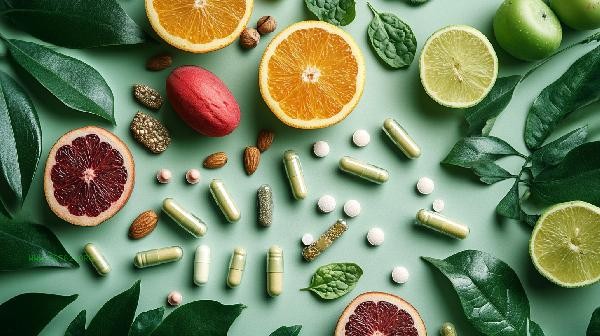During dieting and weight loss, it is important to focus on supplementing the five major nutrients of protein, B vitamins, calcium, iron, and dietary fiber to avoid nutritional imbalance caused by calorie restriction.
1. Protein:

Daily intake of 60-80 grams of high-quality protein can maintain muscle mass and prevent basal metabolic decline. Recommend low-fat and high protein foods such as chicken breast, fish and shrimp, soybeans, etc. Whey protein powder can be used as a convenient supplement. Protein deficiency may lead to hair loss and weakened immunity.
2. Vitamin B family:
Whole grains, lean meat, and green leafy vegetables are rich in B1, B2, B6, etc., which can promote carbohydrate and fat metabolism. Dieting can easily cause deficiencies in the B group, leading to symptoms such as fatigue and oral ulcers. Compound vitamin B tablets are suitable for individuals with a single diet.
3. Calcium:

800mg of calcium is needed daily to maintain bone density, and low-fat milk, tofu, and sesame paste are preferred. When calcium intake is insufficient, the body will break down bone calcium for energy supply, which may lead to osteoporosis in the long run. Lactose intolerant individuals can choose calcium supplements.
4. Iron element:
Animal liver, blood products, and spinach contain heme iron, with a higher absorption rate than plant iron. Women need 20mg of iron per day, and lack of it can easily lead to anemia and fear of cold. Vitamin C can increase iron absorption rate, it is recommended to consume it in combination. 3. Dietary fiber: Oats, konjac, and chia seeds provide water-soluble fiber, which can delay hunger and regulate gut microbiota. Daily intake of 25-30 grams of dietary fiber, combined with 2000ml of water, can effectively prevent constipation caused by dieting.
It is recommended to adopt a Mediterranean diet pattern, with a basic combination of 1 fist of protein, 2 fists of vegetables, 1 fist of staple food, and 1 handful of nuts per day. Drinking light salt water on an empty stomach in the morning can balance electrolytes, and consuming 5 almonds 30 minutes before dinner can stabilize blood sugar. Combining resistance training three times a week with supplementing branched chain amino acids can reduce muscle loss. Regularly monitor body fat percentage and blood routine, and adjust diet plan in a timely manner when there are persistent signals such as dizziness and amenorrhea.





Comments (0)
Leave a Comment
No comments yet
Be the first to share your thoughts!